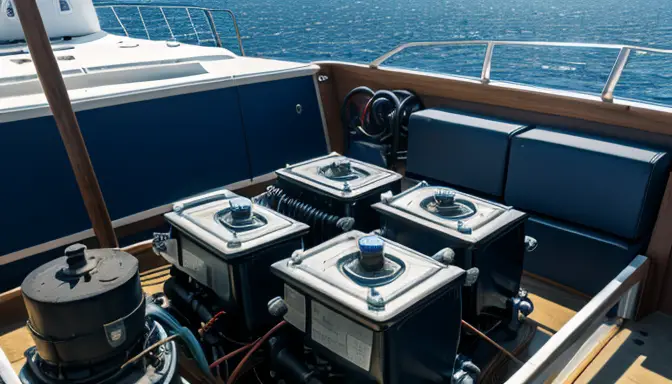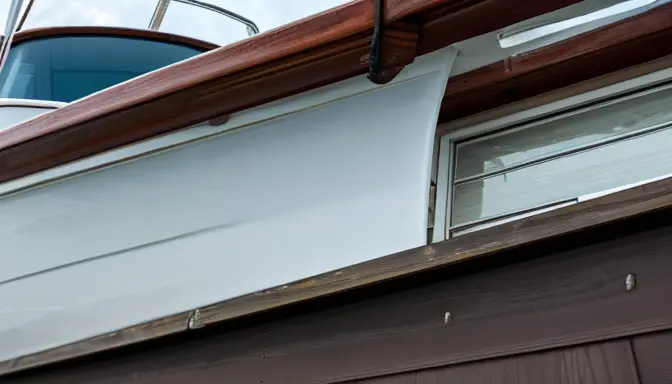Exploring the frequent issues faced by owners of the Grand Banks 36 yacht and how to address them effectively.
- Hull Cracks: Hairline cracks may appear due to stress or aging. Regular inspections and timely repairs with professional guidance can prevent further damage.
- Engine Troubles: Issues like overheating or fuel system problems are common. Routine maintenance, proper fuel management, and regular engine checks can help avoid breakdowns.
- Electrical Failures: Electrical systems may experience failures, affecting navigation and onboard comfort. Ensuring proper wiring, regular inspections, and using quality components can mitigate these issues.
- Deck Leaks: Leaks around windows, hatches, or fittings can lead to water damage. Thorough inspections, resealing vulnerable areas, and addressing leaks promptly can prevent structural deterioration.
- Steering System Problems: Issues with the steering system can compromise maneuverability and safety. Regular maintenance, checking for leaks, and addressing any unusual noises or stiffness are crucial for safe operation.
- Plumbing Issues: Leaks, clogs, or pump failures in the plumbing system can cause inconvenience and damage. Regular inspections, proper winterization, and using quality components can prevent these issues.
- Generator Malfunctions: Generators may experience malfunctions, affecting onboard power supply. Regular servicing, monitoring for unusual sounds or vibrations, and addressing issues promptly can ensure reliable performance.
- Interior Water Damage: Water intrusion from leaks or condensation can lead to mold and deterioration. Proper ventilation, regular inspections, and addressing leaks immediately are essential to maintain the interior’s integrity.
Hull Cracks
Hull cracks on a Grand Banks 36 yacht can be a concerning issue that owners may encounter. These hairline cracks often develop due to stress from rough waters or simply as the boat ages. To effectively address hull cracks and prevent further damage, owners should prioritize regular inspections and timely repairs with the guidance of professional marine experts.
When dealing with hull cracks, it is crucial to take proactive measures to maintain the structural integrity of the vessel. By identifying cracks early on and addressing them promptly, owners can avoid more extensive and costly repairs down the line. Additionally, implementing reinforcement measures recommended by professionals can help prevent future cracks from forming.

Engine Troubles
Engine issues are a common concern for Grand Banks 36 owners, often leading to unexpected breakdowns and disruptions during voyages. To address these problems effectively and ensure the smooth operation of your yacht, it is crucial to implement proactive measures and regular maintenance routines. Here are some key points to consider:
- Regular engine checks to monitor performance and detect any abnormalities early on.
- Proper fuel management to avoid fuel system problems and ensure optimal engine function.
- Routine maintenance schedules to prevent overheating and other potential issues.
- Seeking professional assistance for complex engine troubles to ensure accurate diagnosis and timely repairs.
By staying vigilant and proactive in addressing engine troubles, you can enhance the reliability and longevity of your Grand Banks 36, allowing for safe and enjoyable sailing experiences.
Electrical Failures
Electrical failures on a Grand Banks 36 yacht can be a significant concern, impacting navigation and onboard comfort. These failures can arise from various issues within the electrical system, leading to malfunctions and potential safety hazards. To address and prevent such problems effectively, owners should prioritize the following:
- Proper Wiring: Ensuring that the electrical wiring is correctly installed and maintained is crucial to prevent short circuits and system failures.
- Regular Inspections: Conducting routine checks on the electrical components, connections, and systems can help detect issues early before they escalate.
- Quality Components: Using high-quality electrical components and equipment can improve the reliability and longevity of the system, reducing the risk of failures.
By implementing these preventive measures and staying vigilant about the electrical system’s condition, owners can minimize the chances of electrical failures on their Grand Banks 36 yacht, ensuring a smoother and safer sailing experience.

Deck Leaks
Deck leaks on a Grand Banks 36 yacht can be a significant issue, potentially leading to water damage and structural deterioration if not addressed promptly. These leaks often occur around windows, hatches, or fittings, allowing water to seep into the interior spaces. To effectively tackle deck leaks, owners should conduct thorough inspections of vulnerable areas to pinpoint the source of the problem. Once identified, resealing the affected areas using high-quality marine sealants is crucial to prevent further water ingress. Additionally, addressing any leaks promptly can help maintain the integrity of the yacht’s structure and interior spaces.
Steering System Problems
Steering system problems on the Grand Banks 36 yacht can be a major concern for owners, affecting maneuverability and overall safety on the water. When facing issues with the steering system, prompt action is crucial to prevent potential accidents and ensure smooth sailing. Here are some common problems to watch out for and how to address them effectively:
- Leaks: Check for any leaks in the steering system that could lead to loss of steering control. Address any leaks immediately to prevent further damage.
- Noises: Unusual noises while steering can indicate underlying issues. Investigate the source of the noise and seek professional assistance if needed.
- Stiffness: Difficulty in steering or stiffness in the wheel can be a sign of problems with the system. Regularly lubricate moving parts and have the system inspected for any issues.
By staying vigilant and addressing steering system problems proactively, owners can ensure the safety and reliability of their Grand Banks 36 yacht while out at sea.

Plumbing Issues
Plumbing issues on a Grand Banks 36 yacht can be a major headache for owners, causing inconvenience and potential damage if not addressed promptly. Leaks, clogs, or pump failures in the plumbing system can disrupt your sailing experience and lead to costly repairs. To tackle these problems effectively, a proactive approach is key. Here are some essential steps to prevent and address plumbing issues:
- Regular Inspections: Keep a close eye on your plumbing system to detect any leaks or abnormalities early on.
- Proper Winterization: Before the cold season hits, ensure your plumbing system is properly winterized to prevent freezing and damage.
- Quality Components: Use high-quality plumbing fixtures and materials to reduce the risk of failures.
By staying vigilant, maintaining your plumbing system, and investing in quality components, you can avoid the headache of plumbing issues on your Grand Banks 36 yacht and enjoy smooth sailing adventures.
Generator Malfunctions
Generator malfunctions on the Grand Banks 36 yacht can be a significant issue, impacting the onboard power supply and overall functionality. To address these issues effectively, owners should prioritize regular servicing and monitoring for any unusual sounds or vibrations emanating from the generator. By promptly addressing any malfunctions or abnormalities, you can ensure reliable performance and prevent potential breakdowns that could leave you stranded at sea.
Additionally, creating a maintenance schedule specifically for the generator can help in detecting and resolving issues early on. This proactive approach can save you time and money in the long run, ensuring that your generator operates smoothly when you need it most. Remember, a well-maintained generator is key to a comfortable and worry-free sailing experience.

Interior Water Damage
Interior water damage on a yacht can be a serious issue, potentially leading to mold growth, structural deterioration, and compromising the overall integrity of the vessel. Water intrusion can occur from various sources, including leaks in the hull, windows, or fittings, as well as condensation buildup inside the cabin. To effectively address and prevent interior water damage, yacht owners should implement the following strategies:
- Regularly inspect all areas prone to leaks, such as windows, hatches, and fittings.
- Ensure proper ventilation throughout the interior spaces to minimize condensation.
- Address any signs of leaks immediately by resealing vulnerable areas with quality marine sealants.
- Consider installing moisture detection systems to quickly identify and respond to water intrusion.
- During winterization, pay special attention to areas where water could seep in and cause damage.
Frequently Asked Questions
- How can I prevent hull cracks on my Grand Banks 36?
Regular inspections and timely repairs with professional guidance can help prevent further damage due to stress or aging.
- What should I do to avoid engine troubles?
Perform routine maintenance, manage fuel properly, and conduct regular engine checks to prevent common issues like overheating or fuel system problems.
- How can I address electrical failures on my yacht?
Ensuring proper wiring, regular inspections, and using quality components can help mitigate electrical system failures affecting navigation and onboard comfort.
- What steps can I take to prevent deck leaks?
Thorough inspections, resealing vulnerable areas, and addressing leaks promptly can prevent water damage from leaks around windows, hatches, or fittings.
- How can I maintain the steering system to avoid problems?
Regular maintenance, checking for leaks, and addressing any unusual noises or stiffness are crucial for safe operation and to prevent steering system issues.
- What Happened to Bluewater Yachts? The Inside Story - May 31, 2024
- Upgrade Your Boat’s Water Pump to the Mach 5 - May 30, 2024
- Upgrade Your Boat with the Big Stuff Stuffing Box - May 30, 2024


